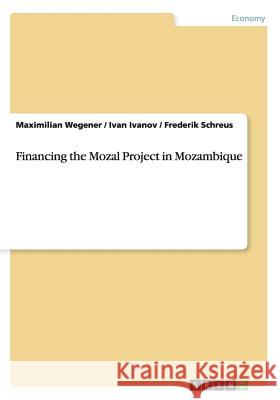Financing the Mozal Project in Mozambique » książka
Financing the Mozal Project in Mozambique
ISBN-13: 9783656693505 / Angielski / Miękka / 2014 / 24 str.
Document from the year 2013 in the subject Business economics - Investment and Finance, grade: 8, Maastricht University, language: English, abstract: We go back to the year 1997 - the year in which two companies, a base metal company and a electricity company, several development banks and government development organizations, commercial banks and governments itself are in talks about the building of a new aluminum smelter in Mozambique. The project US dollar (USD) volume amounts to a total of $1.4 billion USD. Mozambique is one of the poorest countries in sub-Saharan Africa, which just recently ended their civil war. Additionally, Mozambique has the lowest per capita GDP of $90 USD a year in their peer group, a debt burden resulting from the previous civil war years of 355% of GDP. It ranks 166 out of 174 countries in the United Nations Human Development index. Eskom, a south-African energy company, which supplies 95% of the energy in south-Africa and 50% of the continents power, wanted to establish hydroelectric generators at the Zamibi river and rebuild the worn out electricity network, to supply power at competitive prices. The cooperation of Eskom and Alusaf secured Eskom a buyer for its excess power and Alusaf secured a critical factor of production at competitive prices. Alusaf, an aluminum subsidiary of Glencore, a south-African company operating in the precious metals and base metals industry, and IDC, a governmental owned development bank, are the main sponsors with an equal $125 million USD investment each. (A $125 million USD investment, amounts to 8.92% of the project value and 25% of total equity). The project is supposed to be financed with a 50% debt and 50% equity. Alusaf already built and operated a larger project of the same type, an aluminum smelter with double the volume - the Hillside smelter in Richards Bay with a yearly capacity of 500,000 tons. It accomplished it 21% below budget and 4 months before planned completion.












